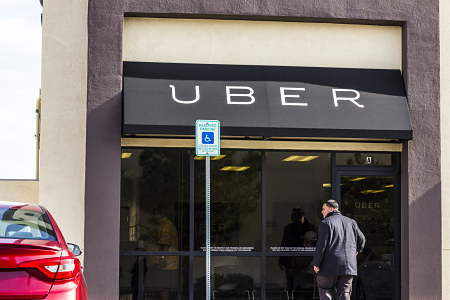Recent upgrades to the Uber app have raised some issues concerning invasion of privacy.

The new Uber policy asks to track riders for five minutes after they have been dropped off. Some question whether that is necessary.
The five minute after-the-fact data collection dismays privacy groups like the Electronic Frontier Foundation.
“They may be concerned about getting into some database about their location and may get dropped off across the street. It’s sad to take that away,” said EFF’s deputy counsel, Kurt Opsahl.
The updated tracking policy also lets Uber track riders even when the app is running in the background. Uber says the reason is it helps “improve pick-ups, drop-offs, customer service and enhances safety.”
The company explained it was facing challenges including connecting drivers and riders. But some consumers and privacy experts argue that goes beyond the scope of what’s needed.
“This location tracking in terms of not just during the ride, but also afterwards is totally unnecessary to this service,” said Claire Gartland of the Electronic Privacy Information Center.
The group filed a complaint in 2015 with the Federal Trade Commission, charging Uber with “unfair and deceptive trade practices.” The FTC has taken no action on the complaint as of yet.
“A step like what Uber has taken here really represents an incremental erosion of the privacy that users have,” Gartland said. “As companies continue to take baby steps and reach further and further into our personal lives, I think it’s a very invasive practice and users are really upset.”
Gartland said Uber’s policy also would allow it to share data for marketing purposes, although an Uber spokesperson denies they are selling any of this location data.
The car service’s new policy has renewed the debate over how much access digital services -- including companies like Google and Amazon -- should have, and who should regulate them.
The Federal Communications Commission limits how cell phone carriers can share consumer’s personal information, but Gartland said digital platforms like smartphone apps don’t face the same scrutiny.
Uber said users can disable the location tracking in the permissions for the app and just type your address in manually. That’s more work, but doable.
But if you allow tracking during your ride, there is no way to stop the company from knowing where you go in the five minutes after you get out of the car, unless you close the app completely immediately every time.
In 2016 apps like Google Allo, Whatsapp and Facebook Messenger added encryption to show a commitment to user privacy.
In 2017 we can expect more tech companies to move to an end-to-end encrypted model that does not retain personal data or metadata for more than a few days while companies in general will have to re-evaluate their current privacy policies to prevent data from falling into the wrong hands.
“The issue of security and privacy is the defining issue of our age,” said Art Coviello, former executive chairman of leading digital security firm RSA. “Whether we can solve it or not will determine if we are masters of the digital era or are its victims.”
Bob Briscoe, chief researcher in networking and infrastructure for British Telecom, said, “Lack of concern about privacy stems from complacency because most people’s life experiences teach them that revealing their private information allows commercial (and public) organizations to make their lives easier by targeting their needs whereas the detrimental cases tend to be very serious but relatively rare.”
